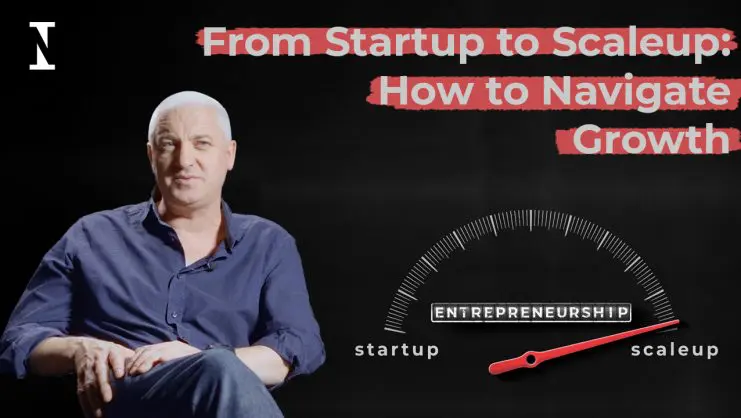Entrepreneurship lore celebrates the bold founders who strike gold by defying convention and doing things their way. These tales have cemented risk-taking and rule-breaking as the defining traits of the startup world. But not all rules are alike. In a forthcoming paper, Donatella Rubelj of WU Executive Academy and I find that even while entrepreneurs may take a more relaxed view of minor infractions, they draw clear boundaries around serious legal, ethical, and social norms. In fact, there are times when they do so even more firmly than non-entrepreneurs. The difference lies in which rules get challenged and why – revealing something distinctive, and perhaps counterintuitive, about entrepreneurial thinking.
To explore whether entrepreneurs truly view rules differently and, if so, which ones they are more inclined to overlook, we surveyed 89 aspiring entrepreneurs and 70 non-entrepreneurs matched by age, gender, and educational background. Participants evaluated 21 real-life scenarios involving various rule violations, ranging from minor offenses like parking on the sidewalk to more serious moral and legal infractions, rating how upset they’d feel if they witnessed each one.
At the softer end of the spectrum – minor infractions of criminal law – entrepreneurs in our study were consistently less concerned than their non-entrepreneurial peers. For example, picking flowers in a botanical garden drew a mean disapproval of 5.1 out of 10 from entrepreneurs, compared to 6.3 from non-entrepreneurs. Parking on a sidewalk was viewed with similar leniency, as if to say: rules matter, but perspective matters too.
This pattern echoes recent research from Leidy Cubillos-Pinilla of TUM School of Management, which found that people with stronger rule-breaking tendencies are more likely to pursue entrepreneurship – though this is diluted in individuals who hold high idealism and consider rules as universally valid. Thus, entrepreneurs may treat some rules as obstacles to be worked around, but ethical boundaries remain. Taken together with our findings, this suggests that rule-bending can support entrepreneurial action – but only up to the point where serious legal or moral lines are crossed.
When the stakes got higher, however, this leniency vanished. More serious offenses, such as shoplifting or pickpocketing, were deemed unacceptable by both groups. In fact, entrepreneurs expressed slightly more outrage at pickpocketing (8.3 versus 8.1). So, the message is that tolerance for minor transgressions does not translate into the same tolerance for more serious violations. Entrepreneurs are not the anarchists they are sometimes made out to be.
With civil law violations, there was no clear pattern of rule-breaking tolerance. Both groups were generally critical, though from different perspectives. Entrepreneurs, for instance, were more bothered by someone smoking in a public building than non-entrepreneurs, suggesting a heightened sensitivity to shared spaces. Non-entrepreneurs, meanwhile, reacted more strongly to people refusing to vacate reserved seats on public transport. Here the issue seems to be less about the rule itself and more about how flagrantly it was disregarded.
It’s easy to conflate innovation with irresponsibility.
What is perhaps most striking in our findings is the parity between both groups when it comes to moral and social norms. On matters of civility and respect – spitting in the street, having loud conversations in the cinema, or failing to thank someone who held the door – entrepreneurs and non-entrepreneurs showed equal disapproval. In a few cases, entrepreneurs were even slightly more offended. Resting legs on a library table, for example, elicited stronger indignation from entrepreneurs. These findings suggest that despite the myths of rule-breaking, entrepreneurs share a strong regard for social harmony.
In essence, entrepreneurs aren’t rebels without a cause. They may take a relaxed view of some minor, outdated, or rigid rules, but they are neither morally lax nor criminally inclined. Instead, they draw a thoughtful boundary: questioning rules without dismissing them, pushing limits with purpose.
This brings us to a broader discussion. In today’s world, where entrepreneurs are often celebrated, even idolized, as disruptors, it’s easy to conflate innovation with irresponsibility. And yet, the difference between the two is vast. We have seen vivid examples of this distinction play out in recent years.
Consider Adam Neumann, the co-founder of WeWork. His vision for shared workspaces redefined commercial real estate and sparked a movement. But behind that vision lay a tangled web of questionable governance practices, self-dealing, and a corporate structure that ultimately collapsed under its own weight. Neumann challenged norms, yes, but failed to respect the responsibilities that come with leading a company. His case shows what can happen when the spirit of innovation overrides the need for structure and accountability.
Then there is the cautionary tale of Elizabeth Holmes and Theranos. Holmes set out to revolutionize blood testing with a technology that, had it worked, could have transformed healthcare. But instead of admitting technological setbacks, she concealed them. The gap between ambition and reality widened until it turned criminal. Holmes’ fall from grace was not the result of breaking the right rules, but of crossing ethical and legal lines that should never be blurred.
Another is Sam Bankman-Fried and the rise and fall of FTX. Heralded as a wunderkind of the crypto economy, Bankman-Fried built a sprawling digital finance empire that later imploded amidst allegations of fraud, mismanagement, and misuse of customer funds. Again, the issue wasn’t that he challenged financial norms, it was that he operated outside of them without adequate safeguards. Innovation without accountability is not just risky; it’s ultimately self-destructive.
By contrast, some founders have shown that it is possible to challenge rules responsibly. Take Stripe, founded by Patrick and John Collison. The company streamlined online payments by cutting through bureaucratic red tape and simplifying complex financial infrastructure. But at no point did Stripe abandon its commitment to compliance and regulation. Their innovation occurred within the boundaries of legality and transparency.
Airbnb has faced regulatory hurdles in almost every city it operates. But rather than flouting laws outright, the company has worked, albeit often slowly and under pressure, to negotiate with regulators and adapt its business model. Research by Marcus Hübscher of TUD Dresden University of Technology, which compares the company’s expansion in Amsterdam, Berlin, and London, shows that evolving regulations push Airbnb hosts to adjust continuously – and this serves to slow unchecked growth and disperse listings from the center of cities to surrounding areas. It’s an example of a company that has challenged existing norms while still respecting the authority of local rules and importance of community standards.
Together, the examples reinforce an important distinction: that entrepreneurs do bend rules, but the type of rule and the way they bend or break it matters deeply. Pushing past outdated or obstructive can drive progress – for the business and for society at large. Breaking laws or ethical codes, however, almost always leads to collapse.
In the end, entrepreneurship is not about rule-breaking for its own sake. It is about intentionality – knowing which rules hinder progress and which ones hold society together. The most successful entrepreneurs are ethical navigators: they stretch the system without snapping it and, crucially, they recognize the line between pushing boundaries and burning bridges.
This distinction matters not only for entrepreneurs, of course, but for leaders and executives, investors, and policymakers. Every organization operates within rules – some outdated, some essential – and the ability to tell the difference is what can define success. The future will not be shaped by those who break rules carelessly any more than it will be shaped by those who play by all the rules. It belongs to those who know which rules to challenge, and how to change them responsibly.
© IE Insights.











